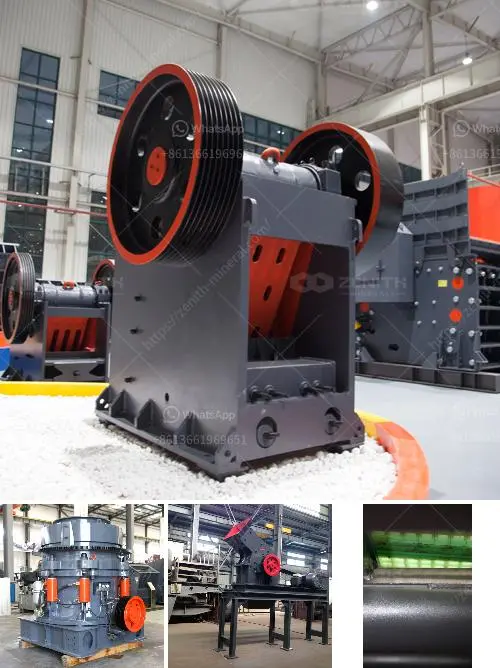When comparing jaw crushers and cone crushers for processing hard rocks, several factors need to be considered in order to determine which might offer higher production:
Material Hardness and Characteristics: Both jaw crushers and cone crushers are capable of processing hard rocks, but the characteristics of the material can influence performance. Jaw crushers are typically used as primary crushers and can handle large, less uniform rock sizes. Cone crushers are typically used as secondary or tertiary crushers and are more efficient with smaller, uniform rocks.
Output Size Requirements: Jaw crushers generally offer a coarser output, while cone crushers provide a finer, more consistent particle shape and size. If a higher degree of reduction is needed, cone crushers may be more suitable.
Production Capacity: Cone crushers often have higher output capacities compared to jaw crushers, especially when processing hard rocks with high throughput requirements. They can also operate at a higher speed, leading to increased production rates.
Efficiency: Cone crushers can be more effective in crushing hard materials due to their design, where the material is squeezed between an external fixed element and a moving element. This can lead to better energy efficiency and lower wear rates versus jaw crushers, which apply pressure through jaw plates.
Maintenance and Wear: Jaw crushers typically have simpler mechanics and thus may be easier and cheaper to maintain. Cone crushers, while potentially offering better performance with hard materials, might require more frequent maintenance due to their more complex mechanics and wear parts.
Application Needs: The overall design of the operation might dictate which crusher is more suitable. A jaw crusher’s overall cost might be lower if you're looking for heavy-duty crushing with minimal fines, whereas a cone crusher might be preferred if finer output size and higher volume throughput are critical considerations.
In conclusion, for higher production with hard rocks, cone crushers generally provide a better option in terms of production capacity, output size uniformity, and energy efficiency. However, jaw crushers might still be necessary as part of a broader crushing stage, especially for larger initial rock sizes. The decision should take into account specific project requirements, budget limitations, and the desired end-product.
